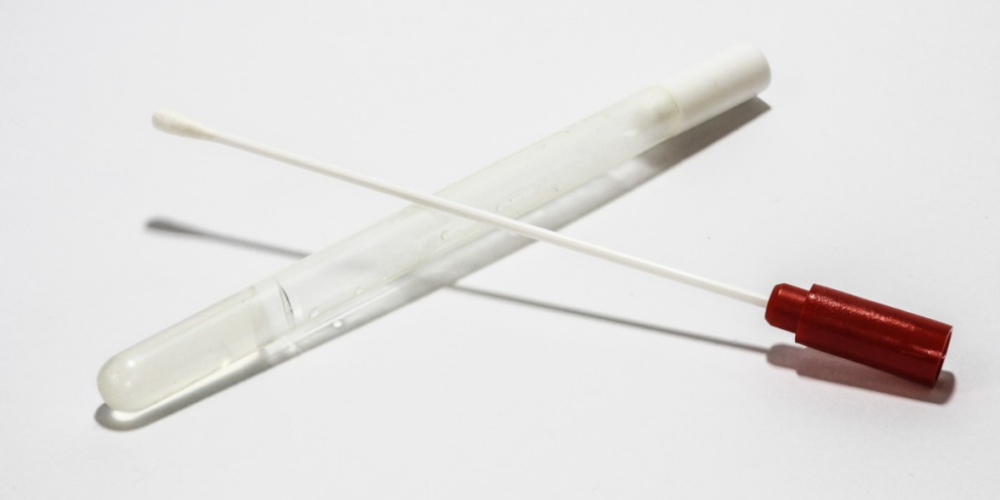
What Is an Antigen Test?
When it comes to COVID-19 testing, there are many different options available to folks these days. From PCR to antigen to rapid to antibody tests…The list goes on and on. Not only are there different methods of testing, but there are also a plethora of test providers and even at-home tests that you can take. Today we’re taking a closer look at the antigen test for COVID-19 to answer all of your questions about this method of testing. Let’s dive in.
What Is an Antigen Test for Covid?
An antigen test is a diagnostic tool used to screen for COVID-19. These tests work by detecting the presence of a specific antigen, a type of molecule, that is on the surface of the SARS-CoV-2 virus. The Centers for Disease Control and Prevention (CDC) advise that antigen tests are typically less sensitive than other testing methods, and it may be necessary to confirm antigen test results with a PCR test. For example, when an antigen test comes back negative for a person with symptoms, confirming the result with a PCR test is recommended. Talk to your medical provider about testing if you have any concerns or questions about what tests you should take after a COVID-19 exposure.
What Is a Rapid Antigen Test?
You may hear the antigen test referred to as the “rapid test” or the “rapid antigen test.” These are all the same testing method. The reason people refer to antigen tests as “rapid” is due to the fact that these tests can return a result in as little as 15 minutes. Other types of COVID-19 tests tend to take longer to get your results, due to these methods needing specialized equipment or more time and attention to perform.
How Is the Antigen Test Done?
An antigen test is performed by either a medical professional or yourself (with an at-home rapid test) and starts with inserting a cotton swab into the nostrils and spinning it around to collect a sample of mucus. After the sample is taken, it is placed into a container with a solution. If the SARS-CoV-2 antigen is present in the sample, the solution will bind to it, creating a structure called an immunocomplex, and then travel up the testing device to the test lines. Once this immunocomplex reaches the test lines, it will bind to the anti-SARS-CoV-2 antibodies that are in the test strip. This creates a visible red-colored line to indicate that the person being tested is positive. If there is no SARS-CoV-2 antigen in the sample, there will be no immunocomplex structure. When the solution reaches the test strip, there is nothing for the anti-SARS-CoV-2 antibodies to react to, so no red line will appear.
Are COVID-19 Rapid Antigen Tests Accurate?
Like all COVID-19 tests, the accuracy of the antigen test depends on when it is taken during your infection. The CDC currently recommends that people get tested at least five days after their last exposure (be sure to check their website for up-to-date information). While an antigen test can come back in as little ast 15 minutes, they have a slightly higher chance of false negatives compared to the PCR test. This may be due to the higher sensitivity of the PCR test, so it can potentially detect lower levels of the virus.
Research is still being done to understand the accuracy rates of the antigen vs PCR covid test. Recent studies have shown that the antigen test correctly diagnosed an average of 72% of people with symptoms and 58% of those who did not show any symptoms. The same people were tested with the PCR method, and 95.1% of infections were correctly diagnosed and 99% were correctly ruled out. It is important to note that these tests were performed in a lab, and not a real-world environment.
What Is the Difference Between the Types of Tests Available For COVID-19
There are several different types of tests that are available for COVID-19, but the three widely used tests are the antigen, PCR, and antibody. The difference between the antigen and PCR test is the method of detection. As discussed above, the antigen looks for the presence of a specific molecular structure on the surface of the virus. The PCR test detects the actual genetic material of the virus in someone’s body. The method for PCR tests is more labor-intensive, and more sensitive, which is why the PCR test is considered the “gold standard” for COVID-19 testing.
When looking at the antigen vs antibody Covid test, the most important thing to note is that antibody tests are not designed to detect a current infection. They can only tell you if you have had COVID-19 in the past, and are not suitable for diagnosing after an exposure. Antigen and PCR tests are the correct testing methods for a potential current infection.
BioCollections: Your COVID-19 Testing Partner
At BioCollections, we understand how important it is to get your COVID-19 test back quickly with a reliable result. That’s why we provide the gold standard of SARS-CoV-2 testing, the PCR test, in as little as 10-24 hours. Your test will include the strain of COVID-19, if you are positive, as well as a flu panel so you can be fully informed about your current health status. Our testing locations are throughout the United States, as well as international, with experienced professionals standing by to provide the quick and convenient COVID-19 testing you need. If you are an employer who needs offsite or onsite visits with HIPAA-compliant tools to view results, we can help.
Visit our website to learn more about our testing solutions, or you can contact us with questions.
